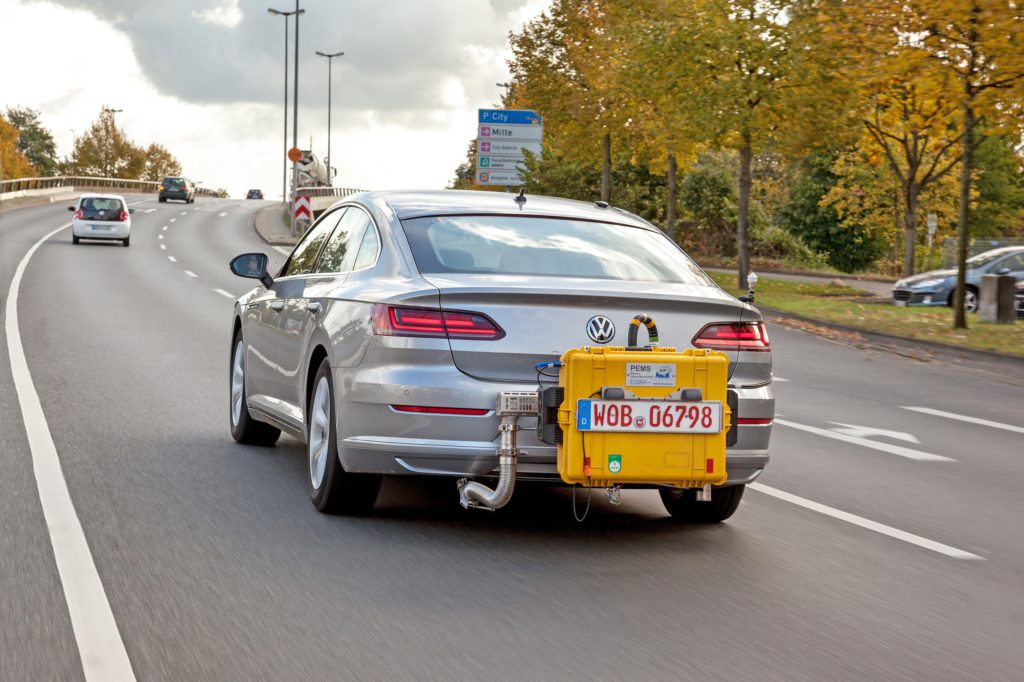Finance data highlights WLTP impact on UK market
20 December 2018

20 December 2018
New car finance data has highlighted the impact of WLTP emissions testing on the UK market as sales continue to fluctuate.
Information released by the Finance and Leasing Association (FLA) has shown that in October, new business volumes in the point of sale consumer new car finance market remained stable, compared to the same month in 2017, with 71,976 sales. The value of new business grew by 5% over the same period, to £1.5 billion (€1.7 billion).
However, the FLA’s data for the three months to the end of October reflect the impact of WLTP, especially in new vehicle supplies. Some manufacturers had struggled to ensure all their models were compliant with the new emissions testing procedure when it came into force from 1 September, meaning older stock was pre-registered or discounted beforehand, while customers had to wait until compliant versions were ready.
During the three months, the volume of new car finance agreements declined by 7% to 246,085 as the value of advances fell by 5% to around £5 billion (€5.5 billion)
The number of new cars financed for business during October declined by 33% to 29,680, according to the FLA, with a decline of 22% (to 88,080) for the three months to the end of October.
Commenting on the figures, Geraldine Kilkelly, Head of Research and Chief Economist at the FLA, said: ′The performance of the POS consumer new car finance market in October continued to reflect trends in private new car sales.
′The consumer car finance market overall remains on track to report single-digit new business volumes growth in 2018 as a whole.’
Used growth
While the new car market suffers, used cars continued to lead the way for the automotive industry in October, according to the figures.
The value of used car finance advances grew by 4% month-on-month to £1.6 billion (€1.8 billion) as volumes rose 8% to 130,313. During the three-month period to the end of October, the FLA has seen volumes grow 7% to 375,208 as the value of advances for the period grew by 13% to £4.6 billion (€5.1 billion)
The data also highlights the trend for businesses to turn to used cars, as WLTP affected tax rates together with supply volumes.
Although starting from a relatively low base, the FLA’s data showed that the number of used cars financed for business during October soared by 125% to 9,482, with an increase of 43% in volume (to 18,105) for the three months to the end of October.
The FLA reported that the percentage of private new car sales financed by FLA members through the POS was 91% in the twelve months to October.
Speaking about the potential position of the used car market, Jayson Whittington, chief editor, Cars & Leisure Vehicles, Valuations at Glass’s, comments: ′In January of this year the Glass’s editorial team predicted that 2018 would be the year that the ′used car was king’, a slogan coined by Jonathan Brown, one of my editors. He was certainly right. I think 2019 will be just as strong.’
′CO2 increases following the introduction of WLTP testing have impacted Benefit in Kind taxation for company car users. It is likely that some wishing to run a diesel company car, may instead choose to take a cash alternative, if they can, and buy their used diesel. This will, of course, increase the demand for diesel in 2019, but it will be 2020 where supply may become problematic, as this will be the first year that feels the impact of the diesel decline in the new market in 2017, where 219,000 fewer diesel cars were sold than the previous year.’